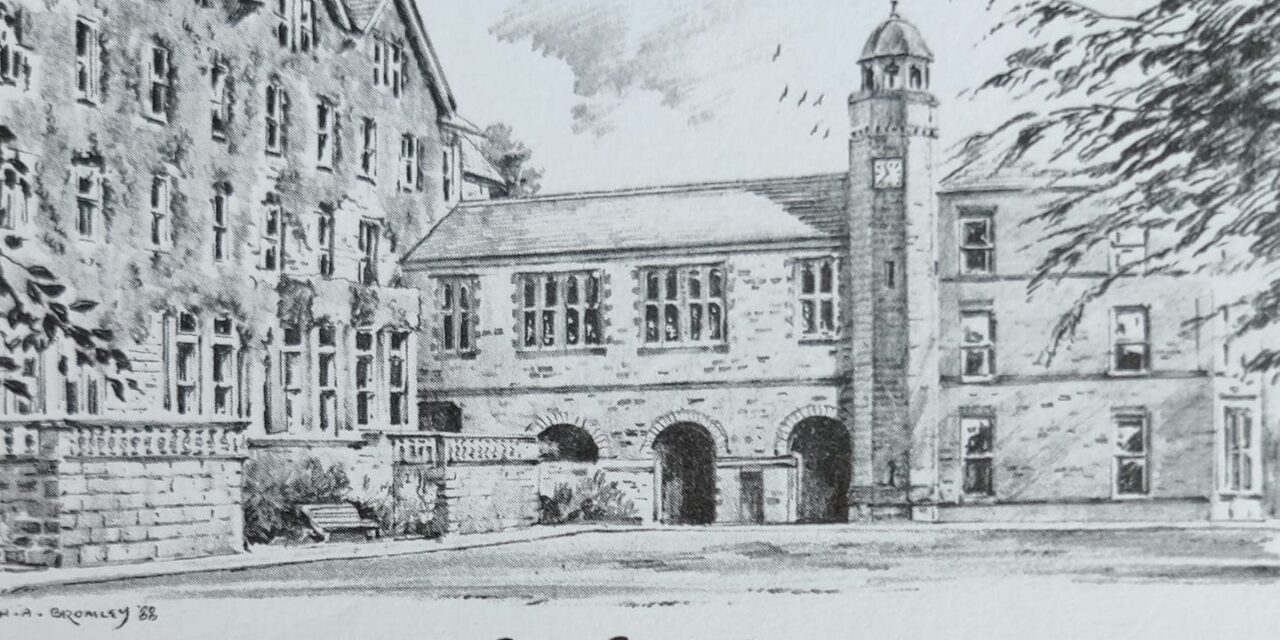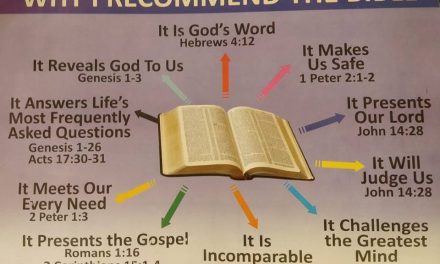Telling the Cliff College story is testifying about biblical, evangelical training that is both relevant and forward-thinking, with an emphasis on scriptural holiness. However, it is possible to allow human frailty to cover God’s majesty and holiness. I came to know about Cliff College in 1995 through Methodist Evangelical Together (MET) magazine (HeadWay). In 2006 I attended the MET weekend prayer retreat where l met good numbers of people including Paul Cricthely, Beacon House of Prayer, Stoke on Trent. My testimony about Cliff College is to remove our fear and give courage in promoting God’s mission at Cliff College. I studied between 2007 and 2011 for my Masters and doctoral research at Cliff College. I had good relationships with teaching and non-teaching staffs, students and some families in the communities around Cliff College. I served as a visiting preacher in Bakewell circuit while studying at Cliff College. I remain grateful to Rev Pete Philip who gave me my first preaching appointment at Calver Methodist Church in 2007. One of my family friends living very close to the College accommodated me few months towards the end of my studies when things were getting difficult. I still maintain good relationships with my lecturers, friends and families outside Cliff College especially in my former local churches, Baslow and Calver Methodist Churches. We celebrated the 90th birthday of one of my god-fathers in Baslow last week.
Looking back, over the past ten years since I left Cliff College, I can boldly re-echo the words of Samuel Chadwick, “Scarcely a man comes that does not get his Pentecost.” Reading the Cliff College News from the current principal, Ashely Cooper yesterday, something tells me, we must not forget who we are and what we have been raised to do as Pentecost people. According to the principal, ‘much of what happens’ at the Methodist Conference this week ‘will affect the life and work of Cliff College’ especially in supporting ‘the church with training pathways for the years to come.’ Using the words of Cooper, Cliff College with a long and rich heritage of providing Bible training to people from diverse backgrounds, for mission and evangelism is ‘loved by the wider Methodist Church and that our work is held in regard.’ The subject of Cliff’s training reminds us that, nothing, not letters, debates or training will ever substitute for the anointed exposition of God’s Word to meet the basic need of the human heart and national decay.
Howard Mellor, a former teacher and Principal of the College in his book, Cliff College: More than a College ‘offers a comprehensive picture of the life of Cliff College, an institution that has had and continues to have a highly significant place within British evangelical life.’ In his review of the book, Ian Randall, explained that the book, ‘illuminates a strand of Methodism in the twentieth century which continued to promote the ‘second blessing’, a charismatic experience of the Holy Spirit, through times when this kind of experience was, to say the least, not widely taught within the Methodist Church in Britain. As Samuel Chadwick wrote in 1920 on the subject of Cliff’s training: ‘Learning is not the chief thing…scarcely a man comes that does not get his Pentecost.’ Indeed, coming to Cliff College without getting Pentecost makes the church without the Spirit, turns a movement to a museum, a prophet to a puppet, a leader to a liability. Just as the church is the creation of the Holy Spirit, missional leadership is the formation of the Holy Spirit.
The beginnings of Cliff as a College in the 1870s to the present reminds us of the difference Holy Spirit fire makes. Learning can inform, Pentecost transforms. In 1883, Thomas and Eliza Champness, started Cliff College in their home at Bolton before they moved into Castleton Hall at Rochdale until the lease expired. In 1904, ‘the Wesleyan Methodist church took over the work and moved the College to its current location, Calver.’ The history of the college reminds us that, ‘the College site was associated with a formidable nineteenth-century evangelical leader, Henry Grattan Guinness, and the Regions Beyond Missionary Union.’ One cannot forget ‘the remarkable ministry of … the Joyful News evangelists, who played an important part in the development of the College before its move to the current site.’ The labours of our heroes past and present – Thomas Cook, Samuel Chadwick, John Arthur Broadbelt, Howard Mellor, Martyn Atkins, Steve Wild, Chris Blake, Stephen Skuce, Philip Meadows, Pete Philip, Peter Ensor, Emery Wright, David Dunn-Wilson, Tim Yates, David Firth, Richard Jackson, Ian White, Alan Fereday and many more cannot be forgotten. Howard reminds us in his book ‘studies of aspects of Cliff such as the contribution of women, overseas mission, buildings, Wesleyan holiness spirituality, the Cliff Trekkers and the Cliff College Fellowship.’ The ‘influential trio’ succession of Principals – Howard Belben, Arthur Skevington Wood and Bill Davies remains examples of ‘illumination of mind, assurance of heart, intensity of love, fullness of power, exuberance of joy.’
My experience as a student at Cliff College was not doctrine without experience or letters without Spirit. It was a living consciousness of God’s presence and power. The serene atmosphere coupled with ecumenical engagement with other students from different traditions, nations, under well-seasoned scholars, bishops, and missional practitioners were unique opportunities which no secular university can boast of then. At Cliff College, I met two very hospitable and notable archivists. Cliff College remains a unique manifestation of Methodism with a renewing Wesleyan legacies in mission, evangelism, leadership, spirituality, and ecumenism. Professor Allan Anderson’s comment during my meeting with him in one of his visits to the College, suggests Cliff College as ‘a place of academic excellence with passionate tutors who are student friendly in comparison with other big universities in UK.’
My contribution to the Ministries Committee of the British Methodist Conference on ‘The Fruitful Field’ ‘a major assessment, initiated by the 2010 Conference, of the Methodist Church’s activities in the fields of formation, learning, training, theological education, scholarship, research and development’ was about support to Cliff College. My reflection was that, theological education and training as the bedrock for theological direction plays a central and dominant role in forming denominational identity. In the context of the ‘Liverpool Minutes’ of 1820, ‘the revival and extension of the work of God’ at Cliff College calls for ‘an abundant effusion of the Holy Spirit on ourselves.’ Cliff College is very unique to our training and leadership development especially in post Covid-19/Floyd’s year. The missional ethos behind the foundation of Cliff College is very relevant today. Rev Dr Martyn Atkins rightly provide us with a good reflection about Cliff College. According to him, ‘Cliff College is a unique place. It successfully combines academic excellence with an environment where Christian discipleship is encouraged and deepened. Over the last hundred years, thousands of people have come to the College to seek God’s guidance for their lives and to equip themselves for the greater service of Christ in the world and in the church. They still do today. That desire is one of the few common factors in a varied College community that is thrilling and challenging place to be.’
The history and the subject of Cliff’s training confirms that ‘the average man is not impressed by publicity and programmes, but he is arrested when he sees the supernatural change that God can effect in the lives of men and women’ regardless of colour, race or sex. For Cliff College to serve the church and bring honour to God we need to pray for the presence of the Holy Spirit which is central to the work of the church. Chadwick writes, ‘neither Pope nor Parliament, neither Conference nor Council is supreme in the Church of Christ. The Church that is man-managed instead of God-governed is doomed to failure. A ministry that is College-trained but not Spirit-filled works no miracles.’ The subject of Cliff’s training 10 years after my studies at the College warns that ‘the carnal can argue, but it is the Spirit that convicts. Education can civilise, but it is being born of the Spirit that saves.’ Using a hymn from Charles Wesley, the call and subject of Cliff’s training is clear:
Come, Holy Ghost, our hearts inspire, let us thine influence prove;
source of the old prophetic fire, fountain of life and love.
Come, Holy Ghost (for moved by thee the prophets wrote and spoke),
unlock the truth, thyself the key, unseal the sacred book.











Recent Comments